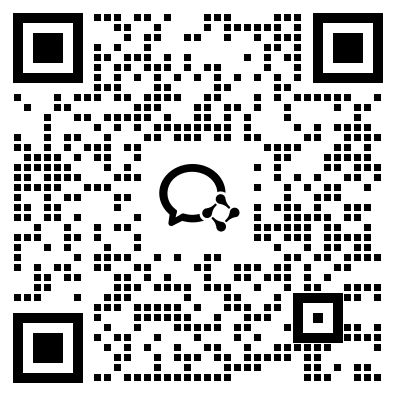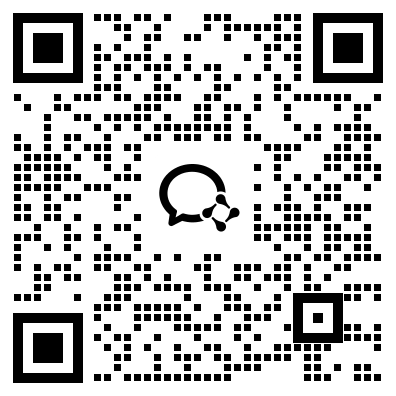考研201英语(一)在线题库每日一练(三百一十六)
摘要:以下是希赛网给大家分享考研201英语(一)在线题库每日一练,希望通过刷题可以帮助大家巩固重要知识点,对知识点查漏补缺,祝愿大家能顺利通过考试!
本文提供考研201英语(一)在线题库每日一练,以下为具体内容
1、In 1924 America's National Research Council sent two engineers to supervise a series of industrial experiments at a large telephone-parts factory called the Hawthorne Plant near Chicago. It hoped they would learn how stop-floor lighting (1)workers' productivity. Instead, the studies ended (2) giving their name to the "Hawthorne effect", the extremely influential idea that the very (3) to being experimented upon changed subjects' behavior. The idea arose because of the behavior of the women in the (4) Hawthorne plant. According to (5) of the experiments, their hourly output rose when lighting was increased, but also when it was dimmed. It did not (6) what was done in the experiment; (7)something was changed, productivity rose. A(n) (8) that they were being experimented upon seemed to be (9) to alter workers' behavior (10) itself. After several decades, the same data were (11) to econometric the analysis. Hawthorne experiments has another surprise in store (12) the descriptions on record, no systematic (13) was found that levels of productivity were related to changes in lighting. It turns out that peculiar way of conducting the experiments may have led to (14) interpretation of what happened. (15), lighting was always changed on a Sunday. When work started again on Monday, output (16) rose compared with the previous Saturday and (17) to rise for the next couple of days. (18), a comparison with data for weeks when there was no experimentation showed that output always went up on Monday, workers (19) to be diligent for the first few days of the week in any case, before (20) a plateau and then slackening off. This suggests that the alleged "Hawthorne effect" is hard to pin down.
问题1
A、affected
B、achieved
C、extracted
D、restored
问题2
A、at
B、up
C、with
D、off
问题3
A、truth
B、sight
C、act
D、proof
问题4
A、controversial
B、perplexing
C、mischievous
D、ambiguous
问题5
A、requirements
B、explanations
C、accounts
D、assessments
问题6
A、conclude
B、matter
C、indicate
D、work
问题7
A、as far as
B、for fear that
C、in case that
D、so long as
问题8
A、awareness
B、expectation
C、sentiment
D、illusion
问题9
A、suitable
B、excessive
C、enough
D、abundant
问题10
A、about
B、for
C、on
D、by
问题11
A、compared
B、shown
C、subjected
D、conveyed
问题12
A、contrary to
B、consistent with
C、parallel with
D、peculiar to
问题13
A、evidence
B、guidance
C、implication
D、source
问题14
A、disputable
B、enlightening
C、reliable
D、misleading
问题15
A、In contrast
B、For example
C、In consequence
D、As usual
问题16
A、duly
B、accidentally
C、unpredictably
D、suddenly
问题17
A、failed
B、ceased
C、started
D、continued
问题18
A、Therefore
B、Furthermore
C、However
D、Meanwhile
问题19
A、attempted
B、tended
C、chose
D、intended
问题20
A、breaking
B、climbing
C、surpassing
D、hitting
2、The ethical judgments of the Supreme Court justices have become an important issue recently. The court cannot(1)its legitimacy as guardian of the rule of law(2)justices behave like politicians. Yet, in several instances, justices acted in ways that(3) the court's reputation for being independent and impartial. Justice Antonin Scalia, for example, appeared at political events. That kind of activity makes it less likely that the court's decisions will be(4)as impartial judgments. Part of the problem is that the justices are not(5) by an ethics code. At the very least, the court should make itself (6) to the code of conduct that (7) to the rest of the federal judiciary. This and other similar cases (8) the question of whether there is still a (9) between the court and politics. The framers of the Constitution envisioned law (10) having authority apart from politics. They gave justices permanent positions (11) they would be free to (12 )those in power and have no need to (13)political support. Our legal system was designed to set law apart from politics precisely because they are so closely (14) . Constitutional law is political because it results from choices rooted in fundamental social (15) like liberty and property. When the court deals with social policy decisions, the law it (16)is inescapably political—which is why decisions split along ideological lines are so easily (17) as unjust. The justices must (18) doubts about the court's legitimacy by making themselves (19) to the code of conduct. That would make rulings more likely to be seen as separate from politics and, (20), convincing as law.
问题1
A、emphasize
B、maintain
C、modify
D、recognize
问题2
A、when
B、lest
C、before
D、unless
问题3
A、restored
B、weakened
C、established
D、eliminated
问题4
A、challenged
B、compromised
C、suspected
D、accepted
问题5
A、advanced
B、caught
C、bound
D、founded
问题6
A、resistant
B、subject
C、immune
D、prone
问题7
A、resorts
B、sticks
C、loads
D、applies
问题8
A、evade
B、raise
C、deny
D、settle
问题9
A、line
B、barrier
C、similarity
D、conflict
问题10
A、by
B、as
C、though
D、towards
问题11
A、so
B、since
C、provided
D、though
问题12
A、serve
B、satisfy
C、upset
D、replace
问题13
A、confirm
B、express
C、cultivate
D、offer
问题14
A、guarded
B、followed
C、studied
D、tied
问题15
A、concepts
B、theories
C、divisions
D、conventions
问题16
A、excludes
B、questions
C、shapes
D、controls
问题17
A、dismissed
B、released
C、ranked
D、distorted
问题18
A、suppress
B、exploit
C、address
D、ignore
问题19
A、accessible
B、amiable
C、agreeable
D、accountable
问题20
A、by all means
B、at all costs
C、in a word
D、as a result
3、In the idealized version of how science is done, facts about the world are waiting to be observed and collected by objective researchers who use the scientific method to carry out their work. But in the everyday practice of science, discovery frequently follows an ambiguous and complicated route. We aim to be objective, but we cannot escape the context of our unique life experience. Prior knowledge and interest influence what we experience, what we think our experiences mean, and the subsequent actions we take. Opportunities for misinterpretation, error, and self-deception abound. Consequently, discovery claims should be thought of as protoscience. Similar to newly staked mining claims, they are full of potential. But it takes collective scrutiny and acceptance to transform a discovery claim into a mature discovery. This is the credibility process, through which the individual researcher's me, here, now becomes the community's anyone, anywhere, anytime. Objective knowledge is the goal, not the starting point. Once a discovery claim becomes public, the discoverer receives intellectual credit. But, unlike with mining claims, the community takes control of what happens next. Within the complex social structure of the scientific community, researchers make discoveries; editors and reviewers act as gatekeepers by controlling the publication process; other scientists use the new finding to suit their own purposes; and finally, the public (including other scientists) receives the new discovery and possibly accompanying technology. As a discovery claim works it through the community, the interaction and confrontation between shared and competing beliefs about the science and the technology involved transforms an individual's discovery claim into the community's credible discovery. Two paradoxes exist throughout this credibility process. First, scientific work tends to focus on some aspect of prevailing Knowledge that is viewed as incomplete or incorrect. Little reward accompanies duplication and confirmation of what is already known and believed. The goal is new-search, not re-search. Not surprisingly, newly published discovery claims and credible discoveries that appear to be important and convincing will always be open to challenge and potential modification or refutation by future researchers. Second, novelty itself frequently provokes disbelief. Nobel Laureate and physiologist Albert Azent-Gyorgyi once described discovery as “seeing what everybody has seen and thinking what nobody has thought.” But thinking what nobody else has thought and telling others what they have missed may not change their views. Sometimes years are required for truly novel discovery claims to be accepted and appreciated. In the end, credibility “happens” to a discovery claim—a process that corresponds to what philosopher Annette Baier has described as the commons of the mind. “We reason together, challenge, revise, and complete each other's reasoning and each other's conceptions of reason.” 1.According to the first paragraph, the process of discovery is characterized by its( ).2.It can be inferred from Paragraph 2 that credibility process requires ( ). 3.Paragraph 3 shows that a discovery claim becomes credible after it ( ). 4.Albert Szent-Gyorgyi would most likely agree that ( ). 5.Which of the following would be the best title of the test?
问题1
A、uncertainty and complexity
B、misconception and deceptiveness
C、logicality and objectivity
D、systematicness and regularity
问题2
A、strict inspection
B、shared efforts
C、individual wisdom
D、persistent innovation
问题3
A、has attracted the attention of the general public
B、has been examined by the scientific community
C、has received recognition from editors and reviewers
D、has been frequently quoted by peer scientists
问题4
A、scientific claims will survive challenges
B、discoveries today inspire future research
C、efforts to make discoveries are justified
D、scientific work calls for a critical mind
问题5
A、Novelty as an Engine of Scientific Development.
B、Collective Scrutiny in Scientific Discovery.
C、Evolution of Credibility in Doing Science.
D、Challenge to Credibility at the Gate to Science.
4、Though not biologically related, friends are as “related” as fourth cousins, sharing about 1% of genes. That is(1)a study, published from the University of California and Yale University in the Proceedings of the National Academy of Sciences, has (2). The study is a genome-wide analysis conducted (3) 1,932 unique subjects which (4) pairs of unrelated friends and unrelated strangers. The same people were used in both (5). While 1% may seem (6), it is not so to a geneticist. As James Fowler, professor of medical genetics at UC San Diego, says, “Most people do not even (7) their fourth cousins but somehow manage to select as friends the people who (8) our kin.” The team also developed a "friendship score" which can predict who will be your friend based on their genes.The study (9) found that the genes for smell were something shared in friends but not genes for immunity. Why this similarity exists in smell genes is difficult to explain, for now, (10), as the team suggests, it draws us to similar environments but there is more (11) it. There could be many mechanisms working together that (12) us in choosing genetically similar friends (13) “functional kinship” of being friends with (14)! One of the remarkable findings of the study was the similar genes seem to be evolving (15) than other genes. Studying this could help (16) why human evolution picked pace in the last 30,000 years, with social environment being a major (17) factor. The findings do not simply explain people's (18) to befriend those of similar (19) backgrounds, say the researchers. Though all the subjects were drawn from a population of European extraction, care was taken to (20) that all subjects, friends and strangers, were taken from the same population.
问题1
A、what
B、why
C、how
D、when
问题2
A、defended
B、concluded
C、withdrawn
D、advised
问题3
A、for
B、with
C、by
D、on
问题4
A、separated
B、sought
C、compared
D、connected
问题5
A、tests
B、objects
C、samples
D、examples
问题6
A、insignificant
B、unexpected
C、unreliable
D、incredible
问题7
A、visit
B、miss
C、know
D、seek
问题8
A、surpass
B、influence
C、favor
D、resemble
问题9
A、again
B、also
C、instead
D、thus
问题10
A、Meanwhile
B、Furthermore
C、Likewise
D、Perhaps
问题11
A、about
B、to
C、from
D、like
问题12
A、limit
B、observe
C、confuse
D、drive
问题13
A、according to
B、rather than
C、regardless of
D、along with
问题14
A、chances
B、responses
C、benefits
D、missions
问题15
A、faster
B、slower
C、later
D、earlier
问题16
A、forecast
B、remember
C、express
D、understand
问题17
A、unpredictable
B、contributory
C、controllable
D、disruptive
问题18
A、tendency
B、decision
C、arrangement
D、endeavor
问题19
A、political
B、religious
C、ethnic
D、economic
问题20
A、see
B、show
C、prove
D、tell
5、Just how much does the Constitution protect your digital data? The Supreme Court will now consider whether police can search the contents of a mobile phone without a warrant if the phone is on or around a person during an arrest. California has asked the justices to refrain from a sweeping ruling, particularly one that upsets the old assumptions that authorities may search through the possessions of suspects at the time of their arrest. It is hard, the state argues, for judges to assess the implications of new and rapidly changing technologies. The court would be recklessly modest if it followed California's advice. Enough of the implications are discernable, even obvious, so that the justice can and should provide updated guidelines to police, lawyers and defendants. They should start by discarding California's lame argument that exploring the contents of a smart phone—a vast storehouse of digital information—is similar to say, going through a suspect's purse. The court has ruled that police don't violate the Fourth Amendment when they go through the wallet or pocketbook, of an arrestee without a warrant. But exploring one's smartphone is more like entering his or her home. A smartphone may contain an arrestee's reading history, financial history, medical history and comprehensive records of recent correspondence. The development of “cloud computing,” meanwhile, has made that exploration so much the easier. Americans should take steps to protect their digital privacy. But keeping sensitive information on these devices is increasingly a requirement of normal life. Citizens still have a right to expect private documents to remain private and protected by the Constitution's prohibition on unreasonable searches.As so often is the case, stating that principle doesn't ease the challenge of line-drawing. In many cases, it would not be overly burdensome for authorities to obtain a warrant to search through phone contents. They could still invalidate Fourth Amendment protections when facing severe, urgent circumstances, and they could take reasonable measures to ensure that phone data are not erased or altered while waiting for a warrant. The court, though, may want to allow room for police to cite situations where they are entitled to more freedom. But the justices should not swallow California's argument whole. New, disruptive technology sometimes demands novel applications of the Constitution's protections. Orin Kerr, a law professor, compares the explosion and accessibility of digital information in the 21st century with the establishment of automobile use as a digital necessity of life in the 20th: The justices had to specify novel rules for the new personal domain of the passenger car then; they must sort out how the Fourth Amendment applies to digital information now. 1.The Supreme Court will work out whether, during an arrest, it is legitimate to( ).2.The author's attitude toward California's argument is one of ( ). 3.The author believes that exploring one's phone contents is comparable to ( ). 4.In Paragraphs 5 and 6, the author shows his concern that ( ). 5.Orin Kerr's comparison is quoted to indicate that( ).
问题1
A、search for suspects' mobile phones without a warrant
B、check suspects' phone contents without being authorized
C、prevent suspects from deleting their phone contents
D、prohibit suspects from using their mobile phones
问题2
A、tolerance
B、indifference
C、disapproval
D、cautiousness
问题3
A、getting into one's residence
B、handling one's historical records
C、scanning one's correspondences
D、going through one's wallet
问题4
A、principles are hard to be clearly expressed
B、the court is giving police less room for action
C、phones are used to store sensitive information
D、citizens, privacy is not effectively protected
问题5
A、the Constitution should be implemented flexibly
B、new technology requires reinterpretation of the Constitution
C、California's argument violates principles of the Constitution
D、principles of the Constitution should never be altered
点击查看【完整】试卷>>延伸阅读

考研微信公众号

考研备考资料免费领取
去领取
- 2
- 9
- 9
 专注在线职业教育25年
专注在线职业教育25年









 扫描二维码
扫描二维码
 扫描二维码
扫描二维码








